- Home
- Dan Simmons
Black Hills: A Novel Page 3
Black Hills: A Novel Read online
Page 3
Paha Sapa clearly remembered that at no point did he try to stop the mare so that he could retrieve a rifle or bow or spear or revolver from any of the dead men that littered the grassy hillside. He could not have stopped the mare if he’d tried. Her lathered sides were flowing with her own blood, and the boy realized that she’d been shot several times with rifle and pistol bullets and that there was an arrow sunk deep in her flesh just behind Paha Sapa’s right leg. With each bound, the mare was snorting up larger gobbets and longer streamers of blood, which flew back and coated Paha Sapa’s neck and chest and face, all but blinding him.
Then the warriors wheeled their horses left like a flock of geese changing course, and Paha Sapa saw that they were charging a band of wasichus that had dismounted on the long hillside below the crest of the ridge. As his mare stumbled forward—certainly she could not live through another charge—Paha Sapa decided that he would count coup. This was the reason he had come up from the village. He had no weapon, not even a knife or a coup stick, so he would have to count coup with his bare hand. Paha Sapa remembers now that he had been grinning wildly, perhaps insanely, when he made that decision.
In the midst of the dead and dying wasichus, a very few bluecoats were kneeling or lying prone or standing and firing. One man with his head bare, short hair, balding—the skin of his forehead so white that for an instant Paha Sapa thought that he had already been scalped—was standing and shooting calmly with a beautiful rifle. A cartridge jammed or he ran out of ammunition as Paha Sapa’s band approached—waves of warriors were riding over and past these and the other dismounted and falling wasichus—and the bluecoat Paha Sapa had noticed now carefully set the rifle down, drew two pistols, and began firing one in his direction.
Paha Sapa’s mare finally went down, her forelegs folding under her, throwing him over her neck and head. Incredibly, impossibly, Paha Sapa hit the ground running and kept running, never falling, almost flying with his dead mare’s speed imparted to his own bounding legs, hurtling almost magically through the dead and dying wasichus as the warriors on horseback raced past on either side, screaming and firing arrows and rifles. Paha Sapa kept his eyes on the tall Wasicun now only twenty strides in front of him. The man saw him, whirled, raised one of the pistols, and was shot.
A bullet had struck the balding Wasicun high in the left chest, knocking him off his feet and backward onto a fallen horse. One of the man’s pistols flew out of sight into the dust cloud, but he held on to the other and raised it, coolly aiming at Paha Sapa’s bloody face as the hurtling, panting boy ran closer, closer.
A racing pony knocked Paha Sapa almost off his feet as the Wasicun fired. Paha Sapa heard the bullet buzz past less than a handswidth from his ear. Then he was upright and bouncing forward again, the Wasicun taking cool and careful aim at him, and at that instant some warrior fired over Paha Sapa’s shoulder, striking the bluecoat in the left temple. The man’s head snapped back, and his beautiful pistol fired harmlessly into the air just as Paha Sapa lunged forward and set his palm and five fingers on the white man’s chest.
And the ghost leaped into him.
WHEN PAHA SAPA STOPS SPEAKING—he has condensed all those remembered details into a very few words—there are grunts and then a long silence. When Sitting Bull finally breaks that silence, he addresses himself to Limps-a-Lot.
—When you return to your village, you must perform a Ghost Owning Ceremony with a very big giveaway.
It is Limps-a-Lot’s turn to grunt. Paha Sapa, ever sensitive to his stepfather’s nuances, knows from this noncommittal noise that the old man does not agree with Sitting Bull that a Ghost Ceremony is the proper response to this spirit-possession.
Long Turd holds out his hand to bring silence and attention.
—We will have to know whether this was Long Hair who sent his ghost into the boy. Black Hills, you saw the man die—do you think it was Long Hair?
—I do not know, Grandfather. The Wasicun had very short hair. I think he was an officer. He did have very beautiful guns, both the rifle and the two pistols. These were gone when I returned to the body.
Foolish Elk cleared his throat, obviously hesitant to speak in the company of the three older holy men.
—It is said that Long Hair carries a rifle with eight sides to the barrel. Did you notice that, Black Hills?
—No. Only that it was very fancy and that it fired faster than the other bluecoats’ carbines.
Paha Sapa pauses.
—I am not a warrior. I am sorry for not observing such things more carefully.
Sitting Bull grunts and waves his hand dismissively.
—No one needs apologize for not being a warrior. You are still a boy and apparently do not wish to become a warrior. You are—and you will become—what Wakan Tanka wishes you to be. No man can change that.
As if embarrassed by saying so much, Sitting Bull sneezes and says—
—Hecetu. Mitakuye oyasin.
So be it. All my relatives—every one of us.
Which means that the discussion, for this day, is at an end.
Sitting Bull nods to the others, gets heavily to his feet, and goes out of the lodge without saying another word. Long Turd and Foolish Elk take time to finish their pipes and then follow, pausing to whisper a few words to Limps-a-Lot.
When the other men are gone, Limps-a-Lot looks at his adopted son. His gaze looks weary, perhaps sad.
—They are breaking up the village early tomorrow, but in the morning, if more wasichus do not arrive to save their friends, Sitting Bull and I will go up and try to find the body of the bluecoat who has infected you and we will try to determine if it was Long Hair. You will lead us to him.
Paha Sapa nods. His hands have been trembling since he awoke safe in Limps-a-Lot’s lodge this evening and he continues to clench his fists to hide the shaking.
Limps-a-Lot touches his back.
—Try to sleep again, my son, despite all the crazy noise from the camp. We will leave before first light and while the other bands head west and north or back to the agencies—I think that Sitting Bull will take his people far away to the north—you and I will head east to home. There we will confer with the others and decide what to do about your ghost.
4
Near Bear Butte
August 1865
PAHA SAPA KNOWS THAT HE WAS BORN DURING THE MOON OF Ripening in the Year the Lightning Struck the Ponies.
He knows that Lakota children are almost never named after places—his name, Paha Sapa, Black Hills, is very unusual and it made the other boys snicker—but he also knows that on the night that he was born near Bear Butte at the end of that hot, strange summer when the lightning struck the pony herd three times, the three most important men in the village—their war chief, Angry Badger; their old, tired wičasa wakan, Loud Voice Hawk; and their best and real wičasa wakan, Limps-a-Lot—all dreamed of the Black Hills.
In his dream, Angry Badger saw a white wolf running out of the dark hills surrounded and backlit by lightning and the wolf spoke with thunder and on the wolf’s back was a crying and naked baby boy.
Loud Voice Hawk dreamed that he was young again and able to ride his favorite horse, Píšco—Nighthawk—who had been dead more than thirty years, and Nighthawk galloped so fast that he carried Loud Voice Hawk into the night air, into the lightning itself, and when the Black Hills were below him, a huge white cetán—a hawk like the one he had been named after seventy-four summers before—rose up out of those hills and the hawk was carrying a naked baby boy child in its talons.
Limps-a-Lot had not dreamed so much as had a vision. The thunder and lightning had wakened him and he had left his two wives and gone out into the hot, wild night—a night made wilder by the screams of Stands in Water dying as she worked to birth her child—and in the lightning to the north, beyond the hulking shape of Matho Paha, Bear Butte, Limps-a-Lot saw a baby boy’s face drawn by lightning in the clouds above the Black Hills.
The morning after that fatherless
boy was born and after the mother had bled to death and been prepared for burial by the women, Angry Badger, Loud Voice Hawk, and Limps-a-Lot met in a closed lodge for six hours, smoking the pipe and discussing their dreams and visions. They decided that—as odd as it would sound to all Natural Free Human Beings—the orphan baby, if he lived, should be named Paha Sapa, for the infant had come from the Black Hills in each of their dreams.
Paha Sapa has learned more about the details of his birth and about his dead parents than one might expect for a child who never knew his parents. He knows, for instance, exactly why his mother, Stands in Water, with only sixteen summers, died giving birth to him, and that her death was related to the fact that his equally young father, Short Elk, had been killed by Pawnee three months before Paha Sapa’s birth.
He knew that Short Elk, who had not yet fully seen seventeen summers, had won Stands in Water in a raid on a Crow village where Short Elk had shown either much bravery or incredible stupidity. The Lakota raiding party had hit the Crow village, scattered their horses, and carried away several women—including Stands in Water, a Lakota who had been captive of the Crow for four years—and when the Crow warriors finally found horses, the twelve Lakota warriors had fled. But Short Elk had turned back, shouted Hokahey!, lifted his arms as if flying, and ridden through the Crow lines as they all fired and shot arrows at him. Nothing touched Short Elk. Then he rode back through the Crow skirmish lines, his eyes closed, his head thrown back, and his arms out to his sides. For his courage, Angry Badger and the other warriors had awarded him Stands in Water as his bride.
But then, three months before Paha Sapa was born, Short Elk—quite full of himself now, with six beautiful ponies to his name—had joined five older warriors on a raid on a large Pawnee village far to the west of the Black Hills. This raid was for ponies only, and Wolf Turning, the older warrior leading the raid, told the others that when they got the ponies, they would ride hard and not stop to fight. But again Short Elk showed himself a hero. Disobeying Wolf Turning during the wild ride back across the plains, Short Elk had slid off his horse, driven a stake into the prairie, attached a ten-foot thong to the stake, and then wrapped the other end of the thong around his waist. The idea was that he would not move from that place. Short Elk cried to the other five Lakota—
—They cannot harm me! I see the future. The Six Grandfathers watch over me! Join me, my friends!
The five older men pulled up their ponies but did not go back. They watched from a grassy hilltop two hundred broad paces away while fifty howling Pawnee rode Short Elk down and—in their anger at losing the ponies—leaped from their horses and cut the young, screaming warrior to pieces, gouging out his eyes while he lived and hacking off his arms, finally cutting his still-beating heart out of his body and taking turns biting into it. The five Lakota watching from the hilltop immediately left the stolen Pawnee horses behind and fled in terror across the prairie to their village.
Stands in Water had been in mourning—weeping, screaming, moaning, tearing at her hair, and slicing flesh from her forearms and thighs and upper arms and even from her breasts—for the full three months between Short Elk’s death and her baby’s birth.
Paha Sapa knew these things even when he was very young, not just because he had begun asking questions of his elders as soon as he could talk, but because of what he thought of as his small-vision-backward-touching.
Paha Sapa had used his small-vision-backward-touching since before he could speak or walk, and he was well into his running-around little-boy years before he realized that not everyone had the ability.
It did not always work. It usually did not work. But sometimes—and he could never predict when—the young Paha Sapa could touch another person’s skin and receive a jumble of memories and voices and sounds and visual images that were not his own. It took him far longer to learn how to sort out these brief, powerful floods of other-thoughts so that he could make sense of them than it took him to learn to speak or walk or ride a pony or shoot a bow.
He remembers that when he was about three summers old, he touched the bare arm of Raven’s Hair, Limps-a-Lot’s younger wife (and Paha Sapa’s wet nurse after his real mother died), and received a wave of confused memory-thoughts of Raven’s Hair’s own baby dying only weeks before Paha Sapa was born, of her anger at Limps-a-Lot for bringing this other infant into her lodge, of her strange anger at Stands in Water—Paha Sapa’s dead mother—for grieving so terribly after her stupid boy-husband’s death that she kept slashing her arms and thighs with her knife in mourning far beyond an appropriate amount of time for that sort of behavior, bleeding and weakening herself too much—especially if one is very small and with small hips and pregnant and not strong to begin with after a long captivity with the Crows, as Stands in Water had been.
At the age of three summers, Paha Sapa had seen through his small-vision-touching that his mother had come close to killing herself through this knife-slash mourning before he was born. Most Lakota women prided themselves on their relative ease of bearing children, feeling that Wakan Tanka—the All—had chosen them to be excused from at least a little of the pain and danger that afflicted all women everywhere. But at the age of three summers, touching Raven’s Hair, Paha Sapa had seen his young mother, pale and weak and sweating, her legs apart and her šan—her woman’s winyaˇn shan—open and ragged and bleeding, as Raven’s Hair and Three Buffalo Woman and the other women used moss and warm clay and even strips of hide softened to the thinness of cloth to try to stem that terrible bleeding, even while other women held him, squealing his lungs out and with his umbilical cord still attached.
Paha Sapa had cried out and staggered away from Raven’s Hair the day he had that touching-vision, and his stepmother—who had always treated him kindly, treated him almost as her real son—asked him what was wrong, what had happened, but Paha Sapa, at that age barely able to speak words in the language of the Ikče Wičas´a—the Natural Free Human Beings—had only cried and pulled away and been sick and feverish all that day and that night and all the next day.
After that, Paha Sapa both feared and wished for the small-vision-backward-touchings and slowly learned how to ask a question or direct a discussion to something he truly wanted to know about and then, as if by accident, touch one or more people near him, hoping to get the rush of their memories and mind-pictures.
Sometimes the magic worked; usually it did not.
But it seemed a shameful thing to Paha Sapa—like peeking under a tent flap to see a young maiden undressing, or deliberately watching Limps-a-Lot mating with Raven’s Hair or his older wife, Three Buffalo Woman, on a warm night when the buffalo robes were thrown off—so he had not confessed his ability to his stepfather until he had reached his ninth summer, the year before the Pehin Hanska Kasata—the rubbing out of Long Hair at the Greasy Grass—that changed Paha Sapa’s life forever.
IN HIS NINTH SUMMER, when he tells Limps-a-Lot about his visions, the holy man asks Paha Sapa several sharp questions about his small-vision-backward-touching experiences, seeking out lies or inconsistencies—obviously thinking that the boy has heard these things in other ways (since there is no privacy whatsoever in a tipi and very, very little in a band with only eighteen lodges). But when Paha Sapa tells of his small-vision-touching experience with Three Buffalo Woman, in which she remembered her time as a girl when she was captive of the Blackfeet and all the men took turns raping her and then burned the insides of her thighs with white-hot stones, Limps-a-Lot falls silent and his frown is fierce. Paha Sapa knows through the same small-vision-backward-touching that Three Buffalo Woman has never told anyone except Limps-a-Lot of those days, and that only once, many years before when Limps-a-Lot suggested (while they were gathering berries near Beaver Creek) that they should marry. The two never discussed it again or mentioned it to anyone else.
Finally, Limps-a-Lot says—
—Why do you call this ability small-vision-backward-touching and not visions from the spirits, Black Hills?
/>
Paha Sapa hesitates. He has never lied to Limps-a-Lot, but he is afraid to answer honestly.
—Because I know these—glimpses—are not my hanblečeya, Grandfather.
Paha Sapa only calls his guardian Limps-a-Lot Tunkašila—Grandfather—at the most formal or most affectionate moments.
—You know that is not what I meant, Black Hills. I am asking why you call these small visions backward visions. Do you touch people and also see forward in their minds and in time… do you see what will happen to them, to us, in the future?
Paha Sapa hangs his head as if he’s been caught touching his ce.
—Han, Tunkašila. Yes, Grandfather.
—Do you want to tell me what small-visions-forward-touching you have had with me and others in our band?
—No, Grandfather.
Limps-a-Lot says nothing for a very long time. It is late summer, the week of Paha Sapa’s birth date, and the two have walked to a hill far enough away that the village lodges look like cloth girl-toy tipis under the cottonwood trees and the grazing horses across the river are mere black specks moving through the tan grass that rises to their bellies. Paha Sapa listens to the long, slow sibilance of the grass sighing and stirring in the breeze during Limps-a-Lot’s silence. He will hear that sound again ten months later at the Greasy Grass when the shooting and screaming stop.
—Very well, then, Black Hills. You showed courage by telling me these things. I will not press you to tell me about the small-vision-forward-touching visions until you are ready—but do not hesitate to do so if you see something that is important to the survival of our people.

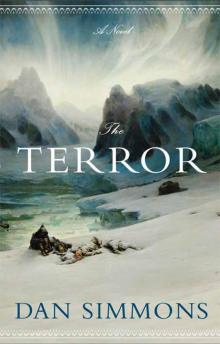 The Terror
The Terror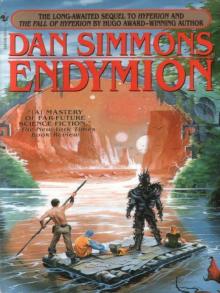 Endymion
Endymion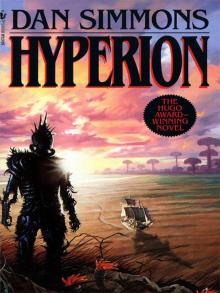 Hyperion
Hyperion The Crook Factory
The Crook Factory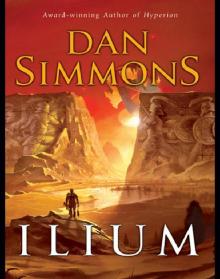 Ilium
Ilium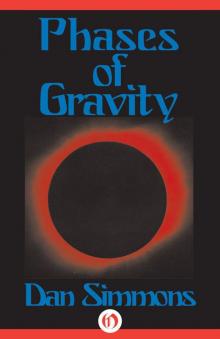 Phases of Gravity
Phases of Gravity Hardcase
Hardcase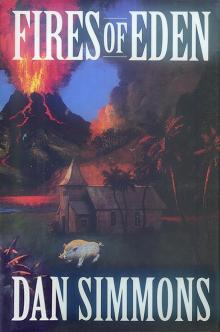 Fires of Eden
Fires of Eden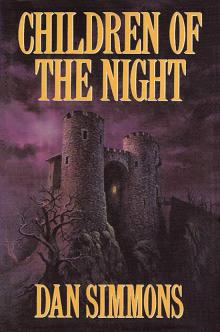 Children of the Night
Children of the Night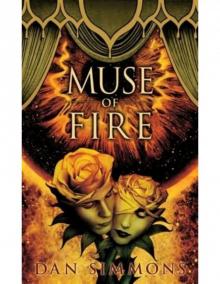 Muse of Fire
Muse of Fire Drood
Drood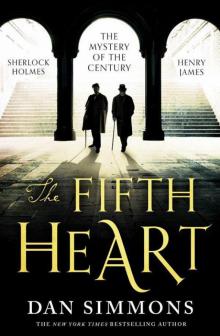 The Fifth Heart
The Fifth Heart Carrion Comfort
Carrion Comfort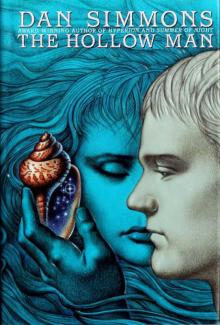 The Hollow Man
The Hollow Man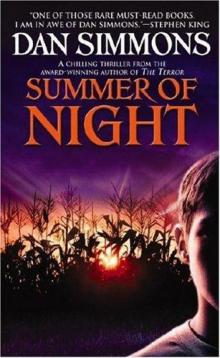 Summer of Night
Summer of Night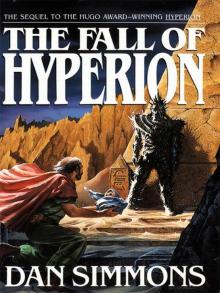 The Fall of Hyperion
The Fall of Hyperion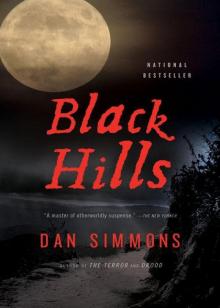 Black Hills
Black Hills A Winter Haunting
A Winter Haunting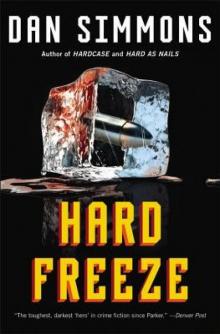 Hard Freeze
Hard Freeze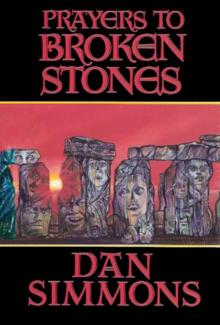 Prayers to Broken Stones
Prayers to Broken Stones Hard as Nails
Hard as Nails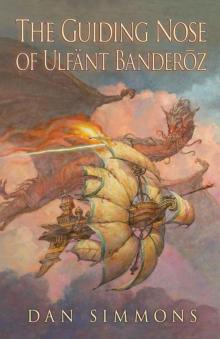 The Guiding Nose of Ulfant Banderoz
The Guiding Nose of Ulfant Banderoz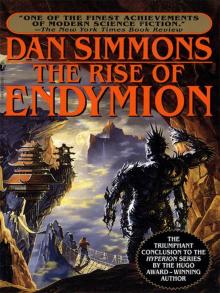 The Rise of Endymion
The Rise of Endymion Orphans of the Helix
Orphans of the Helix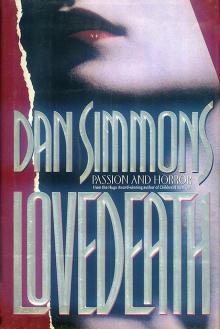 Lovedeath
Lovedeath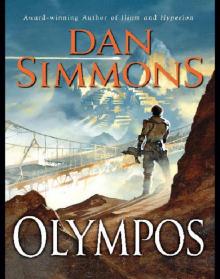 Olympos
Olympos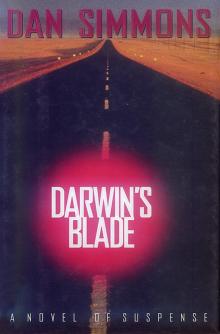 Darwin's Blade
Darwin's Blade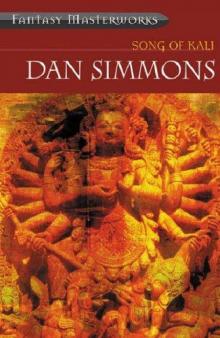 Song of Kali
Song of Kali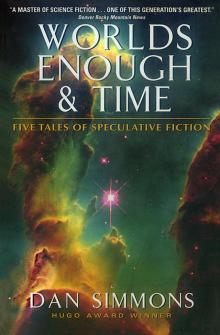 Worlds Enough & Time: Five Tales of Speculative Fiction
Worlds Enough & Time: Five Tales of Speculative Fiction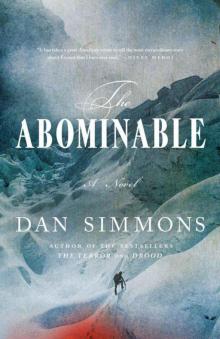 The Abominable
The Abominable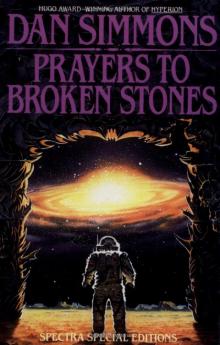 The Death of the Centaur
The Death of the Centaur Hard as Nails jk-3
Hard as Nails jk-3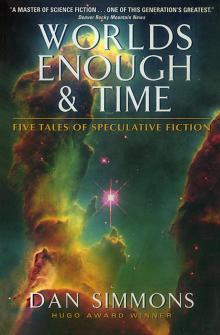 Worlds Enough & Time
Worlds Enough & Time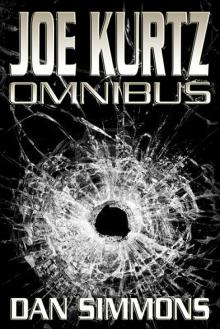 Joe Kurtz Omnibus
Joe Kurtz Omnibus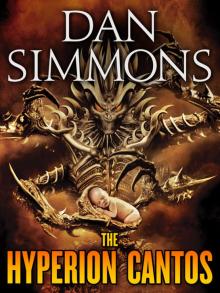 The Hyperion Cantos 4-Book Bundle
The Hyperion Cantos 4-Book Bundle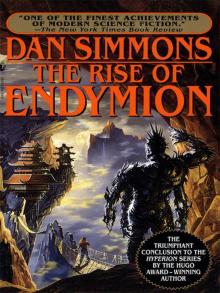 Rise of Endymion
Rise of Endymion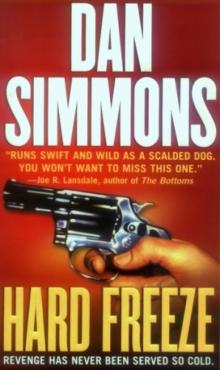 Hard Freeze jk-2
Hard Freeze jk-2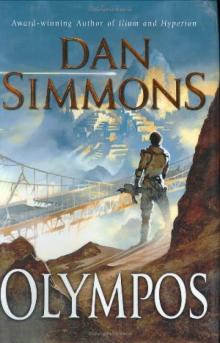 Olympos t-2
Olympos t-2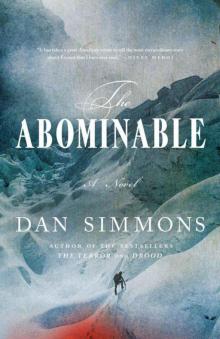 The Abominable: A Novel
The Abominable: A Novel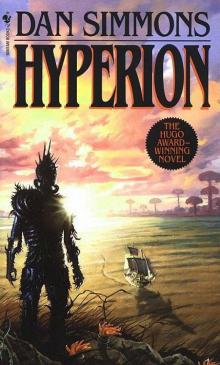 Hyperion h-1
Hyperion h-1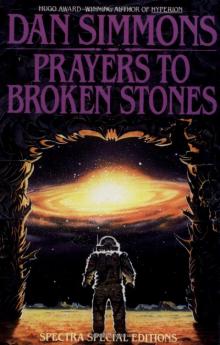 Remembering Siri
Remembering Siri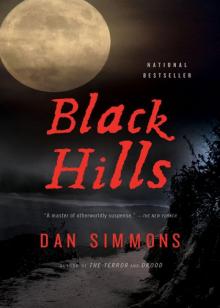 Black Hills: A Novel
Black Hills: A Novel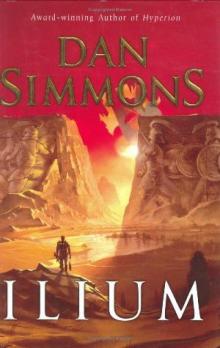 Ilium t-1
Ilium t-1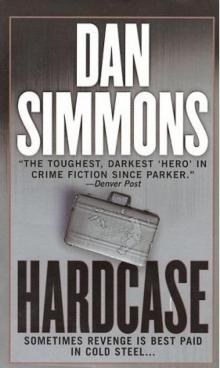 Hardcase jk-1
Hardcase jk-1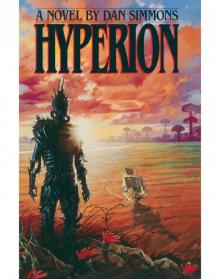 Hyperion 01 - Hyperion
Hyperion 01 - Hyperion